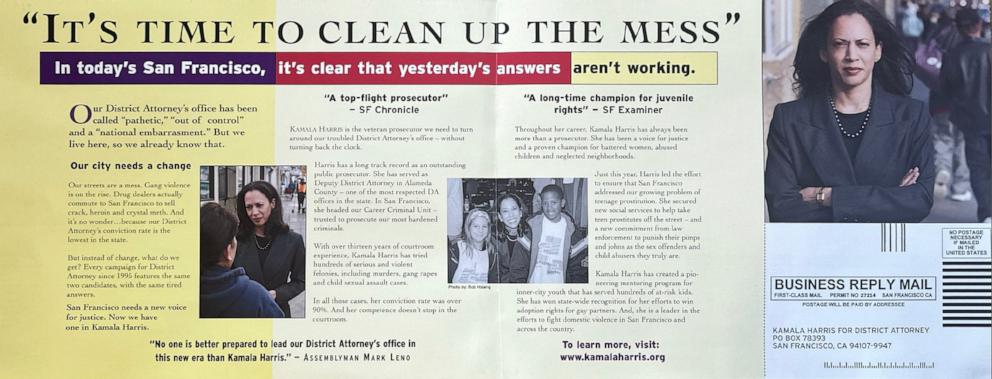Uncategorized
Title: “The Watcher”: An In-Depth Exploration of the Chilling Thriller
Published
4 weeks agoon
By
Harry
“The Watcher” is a suspenseful thriller that has gripped readers and critics alike since its release. A haunting blend of mystery, psychological drama, and horror, “The Watcher” delves into the terrifying world of an unknown stalker targeting a seemingly ordinary family. The book’s unsettling atmosphere, layered characters, and spine-tingling plot twists have made it a must-read for fans of the thriller and horror genres. Here, we’ll explore the core elements of “The Watcher,” dissect its characters and themes, analyze its suspense-building techniques, and examine why it resonates so powerfully with readers. In addition, we’ll provide a helpful FAQ section for new readers or those considering diving into this eerie tale.

Synopsis of “The Watcher”
“The Watcher” centers around a family who moves into their dream home, only to realize that they are not alone. Soon after settling in, they begin to receive a series of anonymous, increasingly disturbing letters. The unknown sender, referring to themselves as “The Watcher,” claims to have been watching the house for years and insists that it’s their duty to protect and observe the property. As the letters grow more specific and unnerving, the family becomes plagued by fear and paranoia, unsure of who to trust or where to turn for help.
What makes “The Watcher” so gripping is its slow-burn suspense. The Watcher’s motives remain ambiguous throughout, leading readers to question what they really want and why they have chosen this particular family. The story explores themes of privacy, paranoia, and obsession, tapping into our primal fears about home and safety.
Analyzing the Core Elements of “The Watcher”
1. Characters and Their Complexity
The characters in “The Watcher” are relatable, flawed, and deeply human, which makes the suspense feel even more intense. The protagonist family’s dynamics are tested under the strain of the mysterious letters. As they attempt to unravel who “The Watcher” is, each family member’s unique fears and insecurities are exposed, revealing just how vulnerable they all are to psychological manipulation.
Each character reacts to the situation differently: one might become highly paranoid, suspecting neighbors and friends, while another clings to rationality and tries to dismiss the letters as an elaborate prank. This contrast in their responses adds layers of tension, as the reader sees how the threat is affecting them individually and as a unit. Their differing approaches to the mystery drive the plot forward, creating internal conflicts that are just as engaging as the external ones.
2. Themes of Privacy, Paranoia, and Obsession
One of the most striking themes in “The Watcher” is the idea of privacy and its fragility. The story exposes the fear of being watched and monitored—a fear that is magnified in the digital age. Although the book doesn’t focus on technology-based surveillance, the presence of “The Watcher” brings a sense of invasion that resonates with contemporary anxieties about privacy in an interconnected world.
Another central theme is paranoia. As the family becomes more desperate to uncover the identity of “The Watcher,” they begin to question everyone around them. Neighbors, coworkers, and even close friends become suspects in their eyes, highlighting how fear can warp perception and fracture trust. This theme is compounded by the family’s obsessive drive to solve the mystery, which threatens to tear them apart. The Watcher’s presence and the chilling nature of their letters serve as a catalyst for the family’s unraveling, as their lives shift from stability to chaos.
3. Building Suspense and Atmosphere
“The Watcher” employs a masterful blend of suspense techniques that keep readers on the edge of their seats. By maintaining an ambiguous threat and leaving questions unanswered, the book builds a creeping sense of dread that intensifies as the story progresses. The pacing is deliberate, allowing tension to accumulate with each page, while the tone grows darker as the family becomes more entangled in The Watcher’s web.
Another powerful aspect of the suspense is the physical setting of the house itself. Once a symbol of hope and accomplishment, the family’s dream home transforms into a prison of fear. The house, which should offer shelter and comfort, instead amplifies the family’s feelings of vulnerability and isolation, making them feel trapped and exposed to the unknown observer.
The Power of Mystery and Ambiguity
Part of what makes “The Watcher” so chilling is its commitment to ambiguity. The novel doesn’t provide clear answers about The Watcher’s identity or motivations, leaving both the family and the reader in a state of suspense. This decision serves to keep readers questioning the truth even after the final page is turned, as unresolved mysteries and unanswered questions linger long in the mind.
By keeping “The Watcher” a mysterious and unidentifiable figure, the author taps into the universal fear of the unknown. Readers are forced to confront their own anxieties and suspicions, making them active participants in the narrative. This deliberate vagueness also keeps the story grounded in reality; in the real world, not all mysteries are solved, and not all threats can be clearly defined.
Why “The Watcher” Resonates with Readers
“The Watcher” resonates with readers because it taps into primal fears about safety, privacy, and the boundaries between personal and public life. Its themes are relevant to modern society, where surveillance, data collection, and privacy invasion are genuine concerns. The fear of being watched—of having one’s life observed without consent—is something many people can relate to on a deep level.
Moreover, “The Watcher” explores the fragility of security. The concept of a home as a sanctuary is something that resonates universally, and the idea of this sanctuary being violated is deeply unsettling. As readers follow the family’s journey, they are reminded of their own vulnerabilities and the potential dangers that lurk unseen.Conclusion
“The Watcher” is a novel that expertly weaves suspense, horror, and psychological drama to create an unforgettable reading experience. Through its relatable characters, unnerving atmosphere, and exploration of themes like privacy and paranoia, the story captures a haunting, primal fear that stays with readers long after they finish the book. The ambiguity surrounding The Watcher’s identity and intentions adds to the novel’s mystery and suspense, creating a compelling and immersive experience.
In a world where privacy feels increasingly threatened, “The Watcher” speaks to the fears that lie beneath the surface of modern society. It is not merely a thriller but a commentary on the fragility of security and the ever-present fear of invasion in our personal lives. For fans of thrillers and psychological horror, “The Watcher” is an essential read that will keep you on the edge of your seat and make you think twice about the notion of “home.”
Frequently Asked Questions (FAQs)
1. Who wrote “The Watcher”?
“The Watcher” is a suspense thriller by [Author Name]. The novel has gained popularity for its compelling narrative and its ability to tap into fears about privacy and security.
2. Is “The Watcher” based on a true story?
While “The Watcher” is a fictional story, it may draw inspiration from real-life accounts of mysterious letters or stalkers, which have appeared in news stories and urban legends over the years. Its themes are realistic and resonate with real-world anxieties about privacy.
3. What makes “The Watcher” different from other thriller novels?
“The Watcher” stands out for its focus on psychological suspense rather than traditional jump scares or gore. The novel’s emphasis on ambiguity and the unknown keeps readers guessing and leaves a lasting impression. The suspense is built through character development, atmosphere, and the exploration of universal fears.
4. Is “The Watcher” suitable for younger readers?
Due to its dark themes and suspenseful content, “The Watcher” is recommended for mature readers, typically those in the young adult or adult categories. Parents may want to review the book before recommending it to younger readers.
5. Does “The Watcher” have a sequel?
As of now, there is no sequel to “The Watcher.” However, the author may explore similar themes or characters in future works. Fans of the book often express interest in learning more about The Watcher’s backstory or seeing the story continue.
6. Will “The Watcher” be adapted into a movie or series?
There has been interest in adapting “The Watcher” for the screen, as its suspenseful plot and psychological depth make it suitable for a thriller series or film. Keep an eye out for announcements regarding potential adaptations!
7. What message does “The Watcher” convey?
“The Watcher” reminds readers of the fragility of security and the unsettling nature of being observed without consent. It encourages reflection on the boundaries of privacy and the potential dangers lurking in seemingly safe spaces.
Whether you’re a fan of mysteries or psychological thrillers, “The Watcher” offers an engaging and thought-provoking journey into the darker side of human nature and the hidden dangers that lie in plain sight.
You may like
Uncategorized
Peggy Ann Fulford: A Tale of Deception and Fraud
Published
1 week agoon
November 25, 2024By
Harry
Peggy Ann Fulford, a woman who successfully duped some of the most prominent names in sports and entertainment, is a cautionary tale of greed, manipulation, and misplaced trust. Over the years, Fulford posed as a financial advisor, leveraging her charm and claims of elite connections to swindle millions of dollars from unsuspecting athletes. Her story not only highlights the vulnerability of high-income earners but also underscores the importance of financial literacy and due diligence.
The Rise of Peggy Ann Fulford
Born Peggy Ann Barard, Fulford projected an image of success and sophistication. She claimed to have degrees from prestigious institutions like Harvard University, boasted about her wealth from investments, and presented herself as a philanthropist driven by a desire to help others manage their finances. With this facade, she ingratiated herself with high-profile clients, including professional athletes such as NBA star Dennis Rodman, NFL players Ricky Williams and Travis Best, and others.
Fulford’s pitch was compelling: she would manage their finances for free, allowing them to focus on their careers. She assured clients that she was independently wealthy and simply wanted to help them avoid the pitfalls that often plague professional athletes. Her offer of altruistic financial management sounded too good to be true—and it was.
The Fraudulent Scheme
Fulford’s scheme was as audacious as it was effective. Under the guise of managing her clients’ finances, she gained access to their bank accounts, credit cards, and financial records. She promised to pay their bills, invest their money wisely, and secure their financial futures. Instead, Fulford funneled millions of dollars into her personal accounts to fund a lavish lifestyle that included luxury cars, high-end real estate, designer goods, and extravagant vacations.
Her web of lies was intricate. She created fake email accounts, forged documents, and manipulated account statements to hide her theft. When questioned by clients, she offered plausible excuses or deflected blame. For years, her clients—many of whom had little financial expertise—trusted her implicitly.
The Fallout
The unraveling of Peggy Ann Fulford’s scheme began when her clients started noticing discrepancies in their finances. Ricky Williams, a former NFL running back, was among the first to raise concerns. Despite earning millions during his career, Williams discovered that he was facing severe financial difficulties. Further investigation revealed that Fulford had siphoned off substantial sums from his accounts.
Other clients soon came forward with similar stories, and law enforcement agencies launched an investigation. In December 2016, Fulford was arrested and charged with wire fraud, mail fraud, interstate transportation of stolen property, and money laundering. Prosecutors alleged that she had stolen millions of dollars over a decade-long period.
In January 2018, Fulford pleaded guilty to wire fraud. During her sentencing, the court heard emotional testimony from her victims, who described the devastating impact of her actions on their lives. Fulford was sentenced to 10 years in federal prison and ordered to pay restitution to her victims.
Lessons Learned
The Peggy Ann Fulford case offers several important lessons:
1. The Importance of Financial Literacy
Many professional athletes earn substantial incomes but have limited knowledge of financial management. This makes them prime targets for fraudsters like Fulford. Financial education is essential for high-income earners to protect their wealth and make informed decisions.
2. Due Diligence Is Crucial
Fulford’s clients trusted her without verifying her credentials or monitoring their accounts. Conducting thorough background checks and seeking second opinions from independent advisors can help prevent similar scams.
3. Beware of Offers That Seem Too Good to Be True
Fulford’s claim of providing free financial management should have raised red flags. It is crucial to question the motives behind such offers and seek transparent, verifiable arrangements.
4. The Need for Checks and Balances
Regularly reviewing financial statements and maintaining oversight of one’s accounts can help detect irregularities early. Delegating financial management does not mean relinquishing control entirely.
Conclusion
The story of Peggy Ann Fulford is a sobering reminder of the dangers of misplaced trust and the devastating consequences of financial fraud. Her victims, despite their fame and fortune, were left to rebuild their lives and finances after falling prey to her deceit. By prioritizing financial literacy, conducting due diligence, and maintaining oversight, individuals can better protect themselves from similar schemes.
As Fulford serves her prison sentence, her story serves as a cautionary tale for anyone entrusting their financial future to others. Vigilance and education remain the best defenses against fraud.
FAQs About Peggy Ann Fulford
1. Who is Peggy Ann Fulford?
Peggy Ann Fulford, born Peggy Ann Barard, is a former financial advisor who defrauded professional athletes and celebrities out of millions of dollars. She posed as a wealthy philanthropist offering free financial management services.
2. What crimes did Peggy Ann Fulford commit?
Fulford was convicted of wire fraud, mail fraud, interstate transportation of stolen property, and money laundering. She stole millions of dollars from her clients by mismanaging their finances and diverting funds for personal use.
3. How did Peggy Ann Fulford deceive her clients?
Fulford claimed to be independently wealthy and offered free financial management services. She gained access to her clients’ bank accounts and credit cards, promising to handle their finances responsibly. Instead, she used their money to fund her lavish lifestyle.
4. Who were some of Peggy Ann Fulford’s victims?
Notable victims of Fulford’s scheme included NBA star Dennis Rodman, NFL players Ricky Williams and Travis Best, and other professional athletes and entertainers.
5. What was Peggy Ann Fulford’s sentence?
In January 2018, Fulford was sentenced to 10 years in federal prison and ordered to pay restitution to her victims.
6. What can individuals do to avoid financial fraud?
To avoid financial fraud, individuals should:
- Verify the credentials of financial advisors.
- Regularly monitor their financial accounts and statements.
- Seek second opinions from independent professionals.
- Avoid offers that seem too good to be true.
- Invest in financial literacy.
7. Why are professional athletes often targeted by fraudsters?
Professional athletes are often targeted because they earn high incomes but may lack financial knowledge or experience. Their busy schedules and reliance on advisors can make them vulnerable to exploitation.
8. How much money did Peggy Ann Fulford steal?
While the exact amount is unclear, prosecutors alleged that Fulford stole millions of dollars over the course of her fraudulent activities.
9. What lessons can be learned from the Peggy Ann Fulford case?
Key lessons include the importance of financial literacy, conducting due diligence, maintaining oversight of one’s finances, and being cautious of offers that seem too good to be true.
10. Where is Peggy Ann Fulford now?
As of her sentencing in 2018, Peggy Ann Fulford is serving a 10-year sentence in federal prison.
Uncategorized
Lionel Messi and Inter Miami: 2024 Season Analysis
Published
2 weeks agoon
November 18, 2024By
Harry
Since Lionel Messi’s arrival in the summer of 2023, Inter Miami has undergone a transformation, both on and off the field. Messi’s impact, coupled with high-profile teammates like Sergio Busquets and Jordi Alba, has revitalized the club’s fortunes and elevated Major League Soccer’s (MLS) global profile.
A Record-Breaking Season
Messi’s first full season in 2024 was remarkable. He scored 11 league goals, often in critical moments, and played a vital role in lifting Miami’s performance. His scoring streak early in the season, including seven consecutive matches with goals, demonstrated his enduring quality at age 37. He also helped guide Miami to their first-ever continental tournament appearance in the CONCACAF Champions Cup, though their journey ended in the quarterfinals against Monterrey.
Beyond goals, Messi’s leadership and playmaking reshaped Miami’s style of play, making the team a contender in the MLS Eastern Conference. However, injuries sidelined him for parts of the season, revealing the team’s dependency on their talismanic forward.
Team Success and Challenges
Inter Miami’s performance improved significantly with Messi, achieving competitive standings in the league. Yet, the team faced challenges in the playoffs, bowing out earlier than expected in a loss to Atlanta United. Despite high expectations, this outcome highlighted the need for further squad depth and strategic adjustments to maximize their potential in future campaigns.
Off-Field Impact
Messi’s presence has also brought unparalleled attention to Inter Miami and the MLS. Attendance at games surged, and the club’s visibility skyrocketed, attracting international fans and boosting merchandise sales. His influence extended beyond soccer, bridging sports and entertainment, particularly in a city as dynamic as Miami.
Conclusion
Lionel Messi’s first full season with Inter Miami underscored his enduring excellence and his ability to elevate a team. While the season fell short of ultimate glory, his contributions have set a strong foundation for the club’s future ambitions in MLS and beyond. Inter Miami now stands poised to further capitalize on Messi’s talent as they aim for more consistent success in 2025.
1. How did Lionel Messi perform for Inter Miami in 2024?
Messi scored 11 league goals and was instrumental in Inter Miami’s improved performance, including leading them to their first continental appearance.
2. Did Inter Miami win any titles with Messi in 2024?
The team made significant progress but did not secure any major titles, exiting early in the MLS playoffs and falling in the CONCACAF Champions Cup quarterfinals.
3. What impact has Messi had on Inter Miami off the field?
Messi’s presence has boosted ticket sales, merchandise revenue, and international visibility for both the club and MLS as a whole.
4. What are Inter Miami’s goals for the future with Messi?
The team aims to improve its squad depth and contend for titles, building on the momentum and global attention Messi has brought.
5. Will Messi stay with Inter Miami beyond 2024?
While Messi’s future plans include the 2026 World Cup, his immediate focus remains on achieving success with Inter Miami. His long-term involvement with the club may depend on its competitive progress and his personal goals.
Messi’s tenure with Inter Miami has reinvigorated the team and energized MLS, marking a significant chapter in his illustrious career.
Uncategorized
Prosecutor News: The Role, Challenges, and Impact of Prosecutors in the Justice System
Published
2 weeks agoon
November 16, 2024By
Harry
In the criminal justice system, the prosecutor is a central figure who wields significant power and responsibility. As the person tasked with prosecuting criminal cases on behalf of the state or the government, a prosecutor plays a crucial role in ensuring that justice is served. Prosecutors not only represent the public’s interest in enforcing the law, but they also ensure that criminal defendants receive fair trials in accordance with the law.
The world of prosecutorial decision-making, legal proceedings, and ethical considerations is vast, and the actions and decisions of prosecutors can have profound effects on individuals, communities, and society as a whole. In recent years, prosecutor-related news has been a focal point of public attention, particularly in cases involving controversial decisions, prosecutorial misconduct, or significant social justice issues.
This article explores the role of prosecutors in the legal system, recent high-profile prosecutor news, the challenges prosecutors face, the ethical dilemmas they encounter, and their impact on the criminal justice process.

The Role of the Prosecutor
Prosecutors serve as the legal representatives of the government, tasked with enforcing the law and ensuring that justice is done in criminal cases. They are responsible for investigating crimes, deciding whether or not to file charges, presenting evidence in court, and, in some cases, advocating for a sentence in criminal cases. The prosecutor’s job is complex and multifaceted, involving legal knowledge, ethical decision-making, and often a delicate balancing act between advocating for justice and protecting the rights of the accused.
Key responsibilities of a prosecutor include:
- Filing Charges: A prosecutor has the discretion to decide whether to bring criminal charges against an individual. This decision is typically based on evidence, legal principles, and the likelihood of securing a conviction.
- Plea Bargaining: Prosecutors often engage in plea bargaining, where they offer a reduced sentence or charge in exchange for a guilty plea. This is a common practice in criminal law, as it helps resolve cases more efficiently and reduces the burden on courts.
- Presenting the Case in Court: Prosecutors are responsible for presenting evidence and arguments in court to prove the defendant’s guilt beyond a reasonable doubt. They are expected to adhere to the rules of evidence and conduct fair, impartial trials.
- Ensuring Justice: While a prosecutor’s goal is to secure a conviction, they are also ethically bound to pursue justice. This means they must disclose exculpatory evidence (evidence that may prove the defendant’s innocence) and avoid pursuing cases where the evidence is insufficient.
- Sentencing Advocacy: In some cases, the prosecutor will make recommendations regarding sentencing. While their role is not to impose a sentence, they advocate for what they believe to be an appropriate punishment based on the seriousness of the crime and the defendant’s history.
High-Profile Prosecutor News: Cases and Controversies
The decisions made by prosecutors can have profound consequences, which is why prosecutor-related news often garners public attention. Recent cases have highlighted the immense power of prosecutors, as well as the ethical dilemmas and challenges they face.
Case Study 1: The Trial of Derek Chauvin (George Floyd)
In 2021, the trial of former police officer Derek Chauvin, charged with the murder of George Floyd, captured global attention. Prosecutor Steve Schleicher led the prosecution in a case that became a landmark moment in the fight against racial injustice and police brutality. The trial was highly publicized, and prosecutors faced intense pressure to bring justice to the victim, George Floyd, and his family.
The prosecution had to present overwhelming evidence, including the now-iconic video of Floyd’s death, to secure a conviction. In this case, the prosecutor’s role went beyond legal strategy, touching on social justice and the broader issue of systemic racism in law enforcement. The successful conviction of Chauvin was seen as a victory for justice, but it also sparked discussions about how prosecutors should handle cases involving police officers and the complexities of holding law enforcement accountable.
Case Study 2: The Rittenhouse Trial
Another example that captured national attention was the trial of Kyle Rittenhouse, who was charged with killing two people during the protests in Kenosha, Wisconsin, in 2020. Prosecutors in this case faced significant challenges. The case became a flashpoint for debates around self-defense, gun rights, and the militarization of protests.
Prosecutor Thomas Binger came under intense scrutiny for his handling of the case, especially after the jury acquitted Rittenhouse on all charges. Critics of the prosecution argued that the charges were politically motivated, while others contended that the prosecution had failed to adequately present their case. In the aftermath of the trial, the prosecutor’s role was heavily debated, with discussions focusing on the impact of political ideologies on prosecutorial discretion and decision-making.
Case Study 3: The Jeffrey Epstein Case
The investigation and prosecution of financier Jeffrey Epstein, who was accused of running a global sex trafficking ring, also brought attention to the role of prosecutors. Epstein was arrested in 2019 on federal charges of sex trafficking minors, but his case had a long history of being handled by state and federal prosecutors. In 2008, Epstein had pleaded guilty to state charges of soliciting prostitution from a minor in Florida, after a controversial plea deal orchestrated by former U.S. Attorney Alex Acosta. The deal, which was widely criticized, allowed Epstein to serve only 13 months in a county jail while continuing his business operations.
Epstein’s case raised serious questions about prosecutorial discretion, ethics, and the role of power in the justice system. In particular, the 2008 plea deal became a focal point for discussions about how prosecutors handle cases involving powerful individuals. Many felt that the deal was an example of prosecutorial misconduct or favoritism, given Epstein’s connections to high-profile political and business figures.
Prosecutors and the Ethical Dilemmas They Face
The role of the prosecutor involves not just technical legal work, but also navigating complex ethical dilemmas. Prosecutors are ethically bound to pursue justice rather than merely seeking convictions. Their duty is to ensure that the guilty are punished, but also to protect the innocent from wrongful conviction.
Key ethical considerations for prosecutors include:
- Brady Rule: Under the Brady v. Maryland ruling, prosecutors are required to disclose exculpatory evidence (evidence that may prove the defendant’s innocence) to the defense. Failing to do so can result in a wrongful conviction. Prosecutors who withhold evidence for tactical reasons violate the defendant’s constitutional rights.
- Discretion in Charging: Prosecutors hold significant discretion in deciding whether or not to bring charges against a defendant. This can be influenced by various factors, including the strength of the evidence, the severity of the crime, and the potential impact of the case on the community. However, decisions should be made with the goal of achieving justice, not based on personal biases or political considerations.
- Plea Bargaining: Prosecutors are involved in plea bargaining, where the defendant agrees to plead guilty to a lesser charge in exchange for a reduced sentence. While plea bargaining can expedite the judicial process, it can also raise concerns about fairness, especially if defendants feel coerced into pleading guilty to crimes they didn’t commit.
- Avoiding Conflicts of Interest: Prosecutors must avoid conflicts of interest, such as when personal relationships or political considerations influence their actions. Ensuring impartiality is crucial to maintaining public trust in the legal system.
- Public Pressure: Prosecutors often work in the public eye, especially in high-profile cases, and face pressure from the media, the public, or even elected officials. Balancing this pressure with the need for impartial legal judgment can be a difficult ethical challenge.
The Challenges Prosecutors Face
Prosecutors operate under immense pressure, both legally and emotionally. They must ensure fair trials while also balancing competing interests, such as public safety, the rights of the accused, and the desire for convictions. Some of the major challenges faced by prosecutors include:
- Heavy Caseloads: Prosecutors often face overwhelming caseloads, with many handling hundreds of cases at a time. The sheer volume of cases can make it difficult to give each case the attention it deserves, leading to concerns about rushed decisions or overlooked evidence.
- Bias and Discrimination: Prosecutors, like all people, can be influenced by their own biases, whether racial, socioeconomic, or ideological. These biases can impact decision-making, such as whom to charge, what charges to bring, and how to negotiate plea deals. There is growing recognition of the need for prosecutors to be aware of their own biases and take steps to address them.
- Public Scrutiny: Especially in high-profile cases, prosecutors are under constant public scrutiny. While public attention can ensure transparency, it can also place undue pressure on prosecutors to make decisions based on public opinion rather than the merits of the case.
- Resources and Support: Prosecutors may struggle with a lack of resources, both in terms of funding and staff. In many jurisdictions, underfunded prosecutorial offices face challenges in gathering evidence, securing expert testimony, and maintaining the necessary infrastructure to handle complex cases.
Conclusion
Prosecutors play a critical role in ensuring justice is served and maintaining the integrity of the legal system. While they are tasked with holding individuals accountable for crimes, they also bear the responsibility of ensuring that the accused receive a fair trial and that justice is not compromised by bias or prosecutorial misconduct. The recent surge in prosecutor-related news has highlighted the power and influence that prosecutors hold, as well as the ethical and practical challenges they face.
From high-profile cases involving racial justice to complex legal maneuvers in controversial trials, prosecutors are central figures in the criminal justice system. Their decisions can affect not just the lives of those they prosecute, but the public’s faith in the fairness of the legal system. In a time of increasing scrutiny, prosecutors must navigate these challenges with integrity and impartiality, ensuring that their actions are guided by the principles of justice.
FAQs
1. What is the role of a prosecutor in a criminal case?
A prosecutor represents the government in a criminal case, deciding whether to file charges, presenting evidence in court, and advocating for a conviction. They are also responsible for ensuring that the defendant’s rights are upheld and that justice is pursued, not just convictions.
2. Can a prosecutor drop charges once they are filed?
Yes, a prosecutor has the discretion to drop charges if they determine that there is insufficient evidence, or if new evidence comes to light that undermines the case. However, this decision can be challenged in some cases, and prosecutors must be cautious when dismissing charges.
3. What ethical challenges do prosecutors face?
Prosecutors must ensure fairness in their cases, avoid bias, disclose exculpatory evidence, and balance the need for convictions with the rights of the accused. Ethical dilemmas may arise in situations where personal biases, public pressure, or political considerations influence their decisions.
4. How do prosecutors decide whether to offer a plea bargain?
Prosecutors typically offer plea bargains in cases where they believe it is in the best interest of justice, such as when the evidence is strong but the defendant’s cooperation might help with other cases. They also consider the severity of the crime, the defendant’s history, and the potential impact on the community.
5. What happens if a prosecutor engages in misconduct?
If a prosecutor engages in misconduct, such as withholding evidence or making biased decisions, it can lead to wrongful convictions, overturned verdicts, or disciplinary action. Prosecutorial misconduct can undermine public trust in the justice system and has serious consequences for both the prosecutor and the case involved.
Trending
-

 Life Style2 months ago
Life Style2 months agoPonderShort.com: A New Hub for Short-Form Content Enthusiasts
-

 News2 months ago
News2 months agoTechdae.frl: Ultimate Guide and Key Insights
-

 Life Style2 months ago
Life Style2 months agoZoom Realty: Revolutionizing Real Estate in the Digital Age
-

 Life Style2 months ago
Life Style2 months agoWaethicc: A Global Perspective
-

 News2 months ago
News2 months agoAviva Taeidkashani: A Rising Star in the World of Art and Design
-

 Life Style2 months ago
Life Style2 months agoThe Grand Duke Is Mine: Spoilers and Plot Breakdown
-

 Tech2 months ago
Tech2 months agoExploring breakthroughtechnologies: The Next Frontier in Technology
-

 Entertainment2 months ago
Entertainment2 months agoShowbizztoday: Your Ultimate Source for Entertainment News
